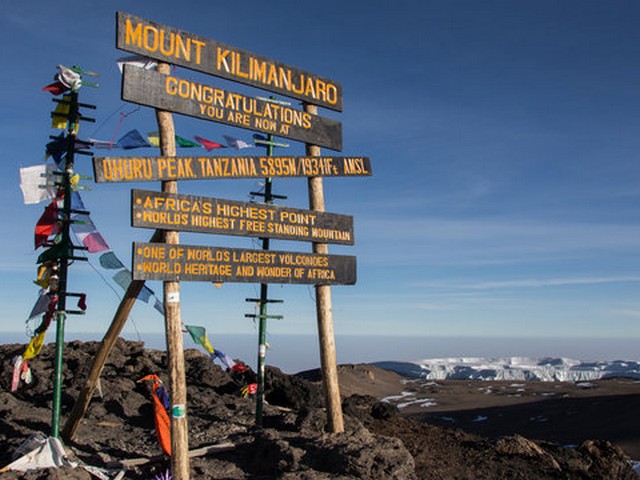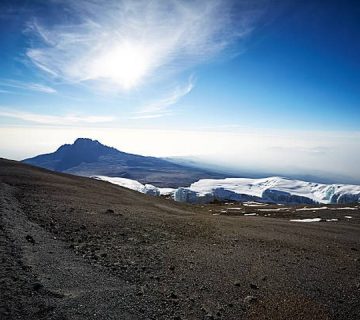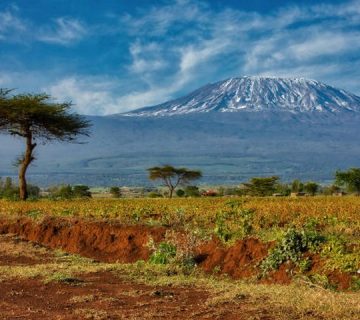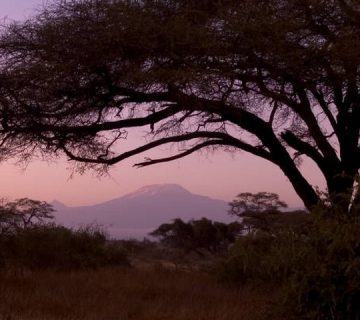Understanding the Local Customs Around Mount Kilimanjaro
Nestled in the heart of Tanzania, Mount Kilimanjaro isn’t just an icon of geographic magnificence; it stands as a cultural beacon, rich with traditions and customs that have been woven into the fabric of the local communities for centuries. When you plan your climb with the Kilimanjaro Centre for Trekking and Ecotourism (KCTE), you do more than just embark on a trek; you dive into a deep, enriching cultural exchange that elevates your experience from mere adventure to a profound journey of understanding and respect.
Why Local Customs Matter on Your Kilimanjaro Climb
Climbing Kilimanjaro is a feat that is as much about the spirit as it is about physical endurance. The mountain is revered by the local Chagga and Maasai communities not just for its majestic heights but as a source of life and spiritual potency. Understanding the local customs around Mount Kilimanjaro helps climbers connect more deeply with the environment and the people who call this land home, transforming an ordinary trek into an extraordinary cultural pilgrimage.
The Welcome: More Than Just a Greeting
Upon your arrival, the warmth of the Kilimanjaro people is palpable. ‘Jambo!’—a Swahili greeting meaning hello—is often accompanied by beaming smiles and heartfelt handshakes. This simple word starts your journey on a note of friendliness, paving the way for a genuine cultural exchange.
The Rituals: Blessings for a Safe Journey
Participating in a small blessing ceremony before your climb is a beautiful way to begin your ascent. Local elders may offer prayers for your safe journey, invoking the mountain gods in Chagga or Maasai language. This act is not just about seeking divine safeguarding but about showing respect to the mountain’s spiritual significance.
Cultural Norms and Practices Around Mount Kilimanjaro
Respect for the Environment
The Chagga and Maasai communities teach us profound respect for nature. Practices such as not cutting down trees unnecessarily and avoiding polluting water sources are ingrained in local customs. As climbers, embracing these practices means contributing to the conservation efforts and sustainability of Mount Kilimanjaro.
Community Involvement
When you book your climb with KCTE, you directly contribute to the local economy. Our guides, porters, and staff are all from local communities, and we actively engage in fair trade practices. By choosing KCTE, you help ensure that the benefits of tourism are shared with those who call Kilimanjaro their home.
Festivals and Ceremonies: The Colorful Cultural Tapestry
The Kilimanjaro region is vibrant with festivals and ceremonies that are deeply entrenched in the local culture. From the Mwaka Kogwa, a celebration marking the Shirazi New Year, to the vibrant dances and songs performed during weddings and rites of passage, these events offer climbers a unique glimpse into the soul of Kilimanjaro’s communities.
Participatory Experiences
Visitors are often welcomed to participate in these celebrations, which is a splendid opportunity to interact with locals and learn more about their way of life. Dancing alongside Maasai warriors or learning to cook a traditional Chagga dish can become highlights of your trip, enriching your understanding of the local customs.
Sustainable Tourism: A Pillar of KCTE
At Kilimanjaro Centre for Trekking and Ecotourism, we believe in responsible and sustainable tourism. Our practices are designed to ensure minimal environmental impact and maximum community benefit. By understanding and respecting local customs, we foster an atmosphere of mutual respect and sustainable tourism.
Eco-friendly Practices
We adhere strictly to the Leave No Trace principles, ensuring that the pristine environments around Kilimanjaro remain undisturbed. Our campsites, trekking routes, and activities are all managed with an eye toward sustainability and environmental preservation.
Supporting Local Artisans
We also encourage our climbers to support local artisans by purchasing authentic, handmade souvenirs. This not only helps preserve cultural crafts but also contributes to the local economy.
Frequently Asked Questions
What should I wear during my visit to avoid offending local customs?
It is advisable to dress modestly in non-revealing clothes. Long trousers and shirts that cover shoulders are respectful choices when interacting with local communities.
Can I participate in local ceremonies and rituals?
Participation is often welcomed, but always seek permission first. It’s important to show respect and follow the lead of your guides who can provide proper advice on etiquette.
How can I contribute to the local community during my climb?
Consider hiring local guides, porters, and services. Additionally, purchasing local goods and crafts can make a significant positive impact.
Are there any specific local customs I should be aware of before I start my trek?
Yes, it’s crucial to ask for permission before taking photographs of people or sacred sites. Always show respect towards elders and avoid public displays of affection, as these might be culturally sensitive.
Embark on Your Journey with Respect and Wonder
Climbing Mount Kilimanjaro with Kilimanjaro Centre for Trekking and Ecotourism (KCTE) is not just an adventure; it’s a journey into the heart of Tanzania’s cultural heritage. Understanding and respecting local customs not only enriches your climbing experience but also bridges the gap between diverse worlds, fostering a shared sense of humanity and respect.
We invite you to be more than just a tourist; be a mindful traveler with us, learning, respecting, and celebrating the rich tapestry of local customs around Mount Kilimanjaro. Join us at KCTE for an unforgettable climb that honors both the land and its people. Book your Kilimanjaro climbing adventure today and take the first step towards a truly transformative journey!




